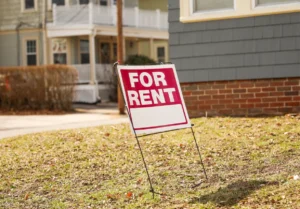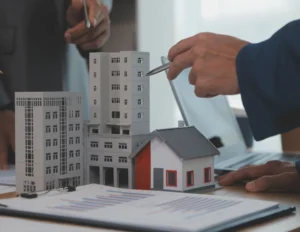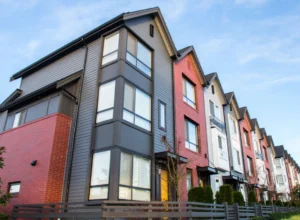Discover the Power of Inhabiting Your Investment

Can a Landlord Live on the Property?
Yes, a landlord can live on the property they rent out. This is common in multi-unit buildings or in cases where the landlord rents out a portion of their home.
However, the landlord must still adhere to tenant privacy laws and lease agreements.
Living on the same property can offer convenience for the landlord in terms of overseeing maintenance and addressing tenant issues promptly.
It can also provide a closer connection to the property and its surroundings.
However, challenges may arise when it comes to maintaining boundaries and privacy, as well as potential conflicts with tenants.
Landlords considering this arrangement should carefully weigh the potential advantages and drawbacks, have clear communication with tenants, and ensure that their decision complies with local laws and regulations.
By taking these factors into account, a landlord can make an informed decision on whether or not to live on their property.
Benefits Of Living On The Property
As a landlord, there are numerous advantages to living on the property you own.
Not only does it provide convenience, but it also offers several unique benefits that can greatly enhance the overall experience of being a landlord.
Increased Security And Oversight
Living on the property gives you a heightened sense of security as you are physically present and can actively monitor the premises.
This level of oversight not only ensures the safety and well-being of your tenants but also helps prevent potential security breaches.
By residing on-site, you can promptly address any suspicious activities and provide a more secure environment for everyone.
Furthermore, being present on the property allows you to proactively mitigate potential risks such as unauthorized access to the building, property damage, or other security concerns.
This added layer of vigilance can significantly reduce the chances of any untoward incidents and promote a safer living environment for your tenants.
Free Rental Application
Get 20 Rental Forms for FREE, including a rental application.
Immediate Response To Tenant Needs
Living on the premises allows you to respond quickly to your tenants’ needs and concerns.
Whether it’s a maintenance request, emergency situation, or general inquiries, your close proximity enables you to address such matters promptly.
This level of responsiveness not only enhances tenant satisfaction but also fosters a stronger landlord-tenant relationship.
Imagine being able to assist a tenant with a burst pipe or a malfunctioning appliance minutes after they report the issue.
This immediate response not only minimizes the inconvenience for your tenants but also demonstrates your commitment to their well-being.
By living on the property, you can provide a level of service that sets you apart from landlords who are not on-site.
Cost Savings On Maintenance And Repairs
Living on the property can also result in substantial cost savings when it comes to maintenance and repairs.
Instead of outsourcing every job or hiring professionals for every task, you can utilize your skills and knowledge to handle minor repairs and maintenance tasks yourself.
This not only saves you money but also allows you to maintain the property in the best possible condition.
Challenges Of Living On The Property
Living on a property you own as a landlord can be a unique experience.
While it offers several advantages such as convenient property management and immediate attention to tenant issues, it also comes with its own set of challenges.
Balancing Personal Life And Property Management
One of the main challenges of living on the property as a landlord is finding the right balance between your personal life and property management responsibilities.
Your home should ideally be a sanctuary away from work-related stress, but when you live where you also work, it can be difficult to draw a clear line between the two.
Here are some ways to address this challenge:
Establish a designated workspace
Create a separate office or workspace within your property where you can focus solely on property management tasks.
This will help separate your personal life from work responsibilities.
Set boundaries and schedule
Establish clear boundaries with tenants regarding your availability and working hours.
Communicate your schedule to tenants and encourage them to contact you during designated times, unless it is an emergency situation.
Delegate tasks
If feasible, consider hiring a property manager or assistant to handle day-to-day property management tasks.
This will allow you to have more time for your personal life and reduce the workload on your shoulders.
Maintaining Professionalism With Tenants
Living on the property can sometimes blur the line between being a friendly neighbor and being a professional landlord.
It is important to maintain professionalism while interacting with tenants to ensure clear expectations, prevent favoritism, and avoid any misunderstandings.
Establish clear tenant guidelines
Clearly communicate the terms of the tenancy agreement to all tenants, including any rules or policies for living on the property.
This will help set expectations from the beginning and maintain a professional relationship.
Handle tenant issues promptly
Address any tenant concerns or issues in a timely manner.
Make sure to follow the appropriate legal procedures and maintain open communication throughout the process.
Observe privacy and boundaries
Respect the privacy of your tenants and maintain appropriate boundaries.
Avoid unnecessary intrusions into their personal space unless there is a valid reason to do so.
Privacy And Boundaries
Living on the property can sometimes pose challenges when it comes to maintaining your own privacy and boundaries.
As a landlord, it is important to strike a balance between being available to address tenant needs and maintaining your own personal space.
Here are some ways to ensure privacy and boundaries:
- If possible, consider having separate entrances for your living space and the tenant’s units to maintain privacy for both parties.
- Set up a dedicated method of communication with tenants, such as phone or email, to maintain a professional distance while still being accessible for important matters.
- Avoid unnecessary entry into tenant’s units without their permission, unless it is for a purpose related to property management or maintenance.
Legal Considerations For Landlords
When it comes to being a landlord, there are several legal considerations that must be taken into account.
Understanding these laws and regulations is crucial to ensure a smooth and successful rental business.
Zoning And Rental Property Regulations
When starting a rental business, it is essential to understand the zoning and rental property regulations in your area.
Zoning laws regulate how properties can be used and can vary from one jurisdiction to another.
Landlords need to ensure that their property is zoned properly for residential rental purposes. Violating zoning laws can lead to fines or even legal action.
Selecting the correct zoning category helps prevent any problems in the future.
Ensure that your rental property adheres to all the necessary zoning regulations, such as occupancy limits, parking requirements, and noise restrictions.
Conduct thorough research in your local area or consult with a legal professional to ensure compliance with the applicable zoning and rental property regulations.
Insurance And Liability Coverage
Landlords should also prioritize obtaining the appropriate insurance and liability coverage to protect their property and their business.
Basic homeowner’s insurance may not provide adequate coverage for rental properties.
Landlords should consider obtaining landlord insurance, also known as dwelling fire insurance or rental property insurance.
Landlord insurance typically covers the property against damages caused by fire, natural disasters, theft, and vandalism.
It may also cover liability claims related to injuries that occur on the property.
Additionally, landlords may want to require tenants to obtain renter’s insurance to protect their personal belongings and to reduce the risk of liability claims.
Before selecting an insurance policy, it is advisable to consult with an insurance professional who can assess your specific needs and help you navigate the complexities of insurance coverage for rental properties.
Eviction And Lease Termination Procedures
Understanding the eviction and lease termination procedures is crucial for landlords to protect their rights and handle tenancy issues lawfully.
Each jurisdiction may have specific rules and regulations regarding eviction and lease termination, so it is important to familiarize yourself with local landlord-tenant laws.
When faced with problematic tenants, landlords must follow the proper eviction procedures outlined by the legal system.
This typically involves issuing a written notice to the tenant, providing them with a specific period to resolve the issue, and taking legal action if necessary.
It is important to document all communication and adhere to the prescribed timeline to ensure compliance with the law.
Additionally, landlords should familiarize themselves with the lease termination procedures for non-renewal or early termination.
This includes providing sufficient notice to tenants and following any specific requirements outlined in the lease agreement or local law.
Strategies For Successful Landlord Living
Living on a property as a landlord can offer numerous benefits, from easy access to tenants to being able to promptly address any maintenance issues.
However, it also comes with its own unique set of challenges.
To make the most of this arrangement, it’s important to have effective strategies in place.
Establishing Clear Boundaries With Tenants
Setting clear boundaries with tenants is essential to ensure a harmonious living environment and maintain professional relationships.
It helps establish mutual respect and prevents any misunderstandings or conflicts. Here are a few strategies to consider:
Clearly communicate expectations
From the onset, clearly communicate your expectations to tenants regarding noise levels, shared spaces, and any specific rules or regulations that apply to your property.
Set designated office hours
Establish specific times during which tenants can approach you with any concerns or issues.
This will help balance your personal life while being available to address tenant needs.
Implement a tenant request system
Create a simple online form or designated email address where tenants can submit repair or maintenance requests.
This allows you to efficiently address any issues while avoiding disruptions to your personal time.
Time Management And Organizational Strategies
Living on the property as a landlord can blur the line between personal and professional life.
Excellent time management and organizational strategies are crucial to maintain a healthy work-life balance.
Consider implementing the following strategies:
Create a schedule
Establish a structured schedule that includes time blocks for tasks related to landlord responsibilities and personal activities.
This will help you allocate time effectively and ensure you prioritize important tasks.
Utilize property management software
Invest in reliable property management software that can streamline tenant communications, rent collection, and maintenance requests.
This will help you stay organized and reduce administrative burdens.
Delegate tasks when possible
If feasible, delegate certain tasks such as property maintenance or bookkeeping to reliable professionals or trusted individuals.
This will free up your time to focus on other important aspects of landlord living.
Building A Reliable Support Network
Living on the property as a landlord can sometimes be overwhelming, but having a reliable support network can make a significant difference. Here are a few key strategies:
Connect with fellow landlords
Join local landlord associations and networking groups to connect with other professionals who understand the unique challenges and can offer valuable guidance.
Hire a property manager
Consider hiring a competent property manager to handle day-to-day tasks such as rent collection, tenant screenings, and property maintenance.
This can alleviate some of the burdens and provide peace of mind.
Build relationships with contractors
Establish relationships with reliable contractors and service providers who can promptly address any maintenance or repair needs.
Having trusted professionals you can rely on will ensure efficient property management.
Final Words
Whether a landlord can live on the property depends on various factors such as local regulations, tenant agreements, and personal preferences.
Although it may offer convenience and oversight, there are also potential challenges and conflicts that need to be carefully considered.
Ultimately, it is essential for landlords to weigh the pros and cons before making a decision that suits their unique situation.
Source: Rental Awareness













 Accessibility
Accessibility